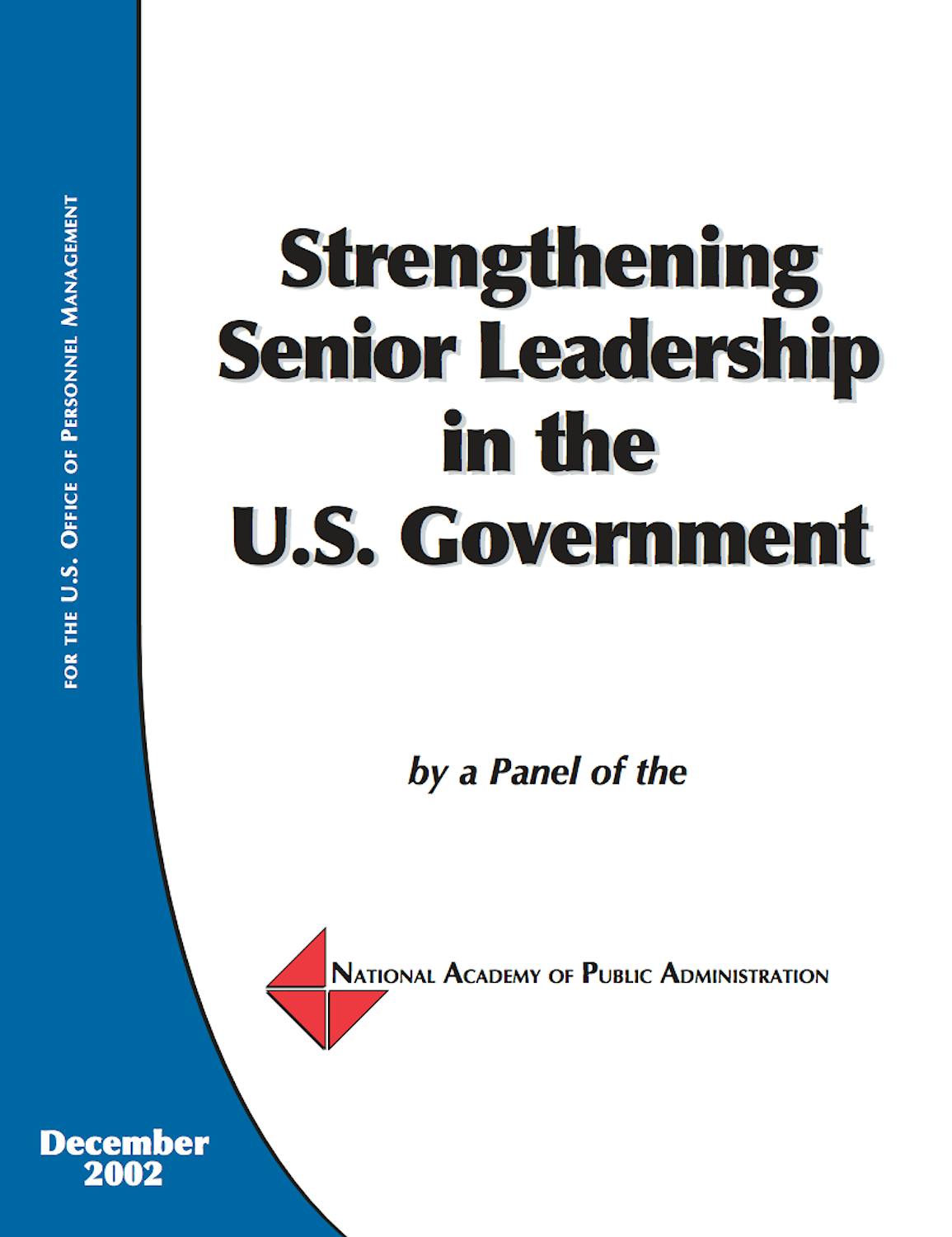
Strengthening Senior Leadership in the U.S. Government
The Civil Service Reform Act of 1978 created the Senior Executive Service (SES) “to ensure that the executive management of the Government of the United States is responsive to the needs, policies, and goals of the nation and is otherwise of the highest quality.” The SES envisioned a corps of executive managers whose members were selected for their executive excellence and accountable for their organizations’ successes.
From the beginning, many questioned whether the SES was exclusively a corps of executive managers, or whether it also would include high-level, world-class professional and technical positions that exclude executive functions and responsibilities. The Grace Commission, Packard Panel, National Performance Review, and U.S. General Accounting Office (GAO) have grappled with this issue. In 1998, the U.S. Office of Personnel Management (OPM) raised the issue anew in conjunction with its broad-based review of the SES system.
Click the button below to view the View Study Report.
View ReportKey Findings
OPM’s work led to various policy improvements. However, it did not reach consensus on whether modifying the organization, structure, and composition of the SES and other senior personnel systems would improve the government’s ability to select, develop, and manage a top-notch SES corps. Stakeholders encouraged OPM to lead a more comprehensive assessment of the issue, with a view toward proposing appropriate statutory changes. At OPM’s request, the National Academy of Public Administration undertook the assessment. This report is the product of that effort.
Recommendations
- The demand for a results-oriented, citizen-centered, market-based government will continue and executives will play a key role in achieving this goal.
- Mobility can contribute to an executive’s professional growth and foster program innovations.
- Improving diversity in the SES corps is a business imperative, in part because research shows that a diverse workforce leads to greater productivity, increased customer satisfaction, and other important performance indicators. It also is the right thing to do.
- Leadership competencies should be the basis for selecting and developing government executives. Competencies should be regularly reviewed to ensure they are current and take into account the evolution and emergence of new competencies.
- The demand for organizational and individual accountability will intensify.
